Projekt se zaměřuje na problematiku péče o děti, a to na jedné straně z pohledu státních politik a institucí, a na straně druhé z pohledu veřejných, politických a expertních diskurzů, které odrážejí dominantní mocenský diskurz "správné péče o děti". Za tímto účelem použijeme dva druhy metodologie: institucionální analýzu path-dependency a kritickou analýzu diskurzu. Projekt vychází z předpokladu, že určitá institucionální rozhodnutí přijatá v určitých časových obdobích determinují odlišnost trajektorií různých zemí. Proto provedeme komparativní studii tří zemí: České republiky, Švédska a Francie, a vysvětlíme rozdíly v jejich historicko-institucionálním vývoji. Za druhé předpokládáme silný vliv veřejných, politických a expertních diskurzů na tato institucionální rozhodnutí a vice versa. Budeme proto studovat vzájemné působení institucionálních rozhodnutí a diskurzů, tak jak se odrážejí ve veřejných textech.
Publikace vydané v rámci projektu (celkem 15, zobrazeno 1 - 10)
Authors of the book reveal and deconstruct seven myths that block open discussion and reforms in the area of childcare policy in the Czech Republic, and formulate the principles of non-discriminatory childcare policy.
In this chapter the authors name seven myths that they have identified in Czech society, which block development of Czech childcare policy.
Based on analysis of historical documents the author deconstructs the myth strongly held in the Czech Republic that nurseries are communist invention, and analyzes their operation in Czechoslovakia before 1989.
The chapter reveals that the myth that children below the age of three do not benefit from quality daycare is not based on current scientific knowledge and that the myth does not exist in all countries.
Public opinion research shows that most Czechs think children should stay at home the first three years. But the situation is more complicated and filled with contradictions.
This chapter presents a short overview of childcare policies implemented in Scandinavian countries, France and Germany, and shows that these policies stem from different ideologies. Based on an institutional analysis the authors then discuss the ways in which Czech conservatives have managed to gain great influence over Czech childcare policy.
This chapter summarizes results of previous analysis that led the authors to identifying and deconstructing seven myths on childcare that prevail in the Czech Republic. Based on arguments introduced in previous chapters this chapter offers also authors´ recommendations to Czech childcare policy.
The area that comprises today’s Czech Republic has a long and rich history of providing childcare facilities to preschool children. Kindergartens continue to be popular to this day and at present almost all Czech children attend these facilities. On the other hand, nurseries nearly vanished in the Czech Republic.
The article offers a comparison of social policies and institutions of care for children younger three years in the Czech Republic and France. The explanation of the differences is found (among other things) in the different development of expert discourses. The discourse thus impacts strongly on the development of institutions.
We examine pre1989 and post1989 work-care models in Czech, Slovak and East German societies. Once problems of the modernized gender model emerged, Czechoslovakia and GDR set two distinct policy paths and differences in work-care practices and values emerged. Based on the institutional and cultural legacy, we explain why the post1989 transition period was accompanied by continuity in work-care models and substantive changes evolved only then, in a period of stability.

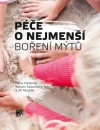
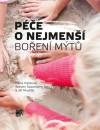
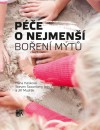
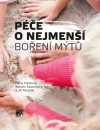
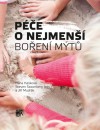

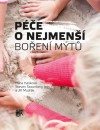

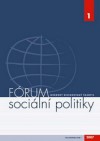
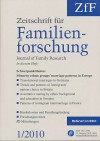
Newsletter
Facebook
X
Tweets by SociologickyNewsletter